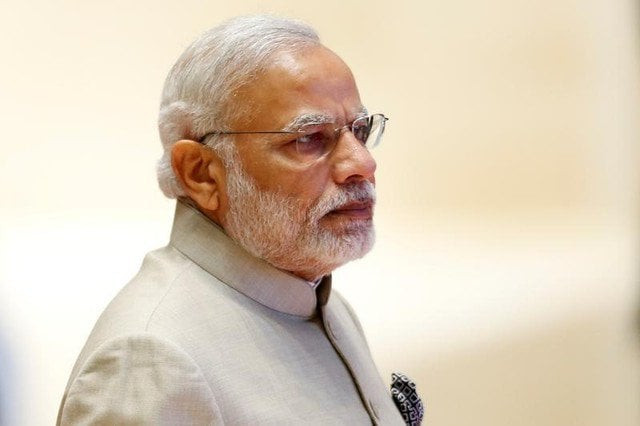Heating the waters
The next conflict in the subcontinent is going to be about water and not territory

PHOTO: REUTERS
Since coming to power in May 2014 Mr Modi has done next to nothing to advance the peace process between India and Pakistan and has arguably taken the process several steps backwards rather than forwards. He does this against a backdrop of studied indifference on the part of the global community which holds its nose and points in the sub-continental direction and says ‘Sort it out for yourselves’ — a position it may be unable to sustain in the face of the latest turn of the pages in the Modi playbook. Exchanges of fire along the Line of Control (LoC) are one thing, but threatening the Indus Water Treaty (IWT) quite another.

The IWT has long been considered one of the success stories of modern diplomacy. It was mediated by the World Bank in 1960 and has proved remarkably robust, surviving the wars of 1965, 1971 and 1999 virtually intact. But the IWT was ratified in the days before global warming was understood — or even recognised — and the changes in climate globally began to affect an unsuspecting world. There have been rumblings that the IWT may be abrogated from the Indian side in the last two years, and the threat for Pakistan is very real indeed as it is ‘downstream’ of virtually all of the river sources of which India has potentially the control or interruption of the flow.
The loose-lipped and loquacious Mr Modi is well aware of all this, and his statement on Friday 25th that ‘water that belongs to India cannot be allowed to flow into Pakistan’ does nothing to lower tensions, indeed the reverse. The IWT covers six rivers — the Beas, Ravi, Sutlej, Indus, Chenab and Jhelum — and clearly and unequivocally states that the waters of all are to be shared equitably between the two countries. According to Mr Modi who is doubtless eyeing his Punjab farmers vote bank it is his bounden duty to see that they get every drop of water that is due to them. That it is — but not at the expense of everybody else that is downstream of the Modi rhetoric, and it is here that the international community may finally be jerked from their slumbers.
The Adviser to the Prime Minister on Foreign Affairs Sartaj Aziz is right to sound the alarm. If India decides to violate the IWT and interrupt the flow to Pakistan it will not only be a treaty breach, but has the potential to create a regional precedent for the circumventing or abrogation of long-standing international law. The ramifications of such a hostile move are many and obvious. Were China to decide to suspend the flow of the waters of the Brahmaputra for instance — which it is technically capable of doing — the effects would be far reaching indeed, and threaten Chinese relations with India and Bangladesh. This problem — water — is not going to go away and is only going to get worse. The control of water across the subcontinent is a vital factor in regional peace and stability and the suspension by India of the Indus Water Commission talks on the grounds that Pakistan is a state-sponsor of terrorism is an ominous sign.
Earlier in November the Indian government decided that it would use more water from the rivers flowing through the Indus basin, but within the confines of the IWT. Now Mr Modi has turned up the heat. This is one pot that should not be allowed to boil over.
Published in The Express Tribune, November 28th, 2016.
Like Opinion & Editorial on Facebook, follow @ETOpEd on Twitter to receive all updates on all our daily pieces.














COMMENTS
Comments are moderated and generally will be posted if they are on-topic and not abusive.
For more information, please see our Comments FAQ